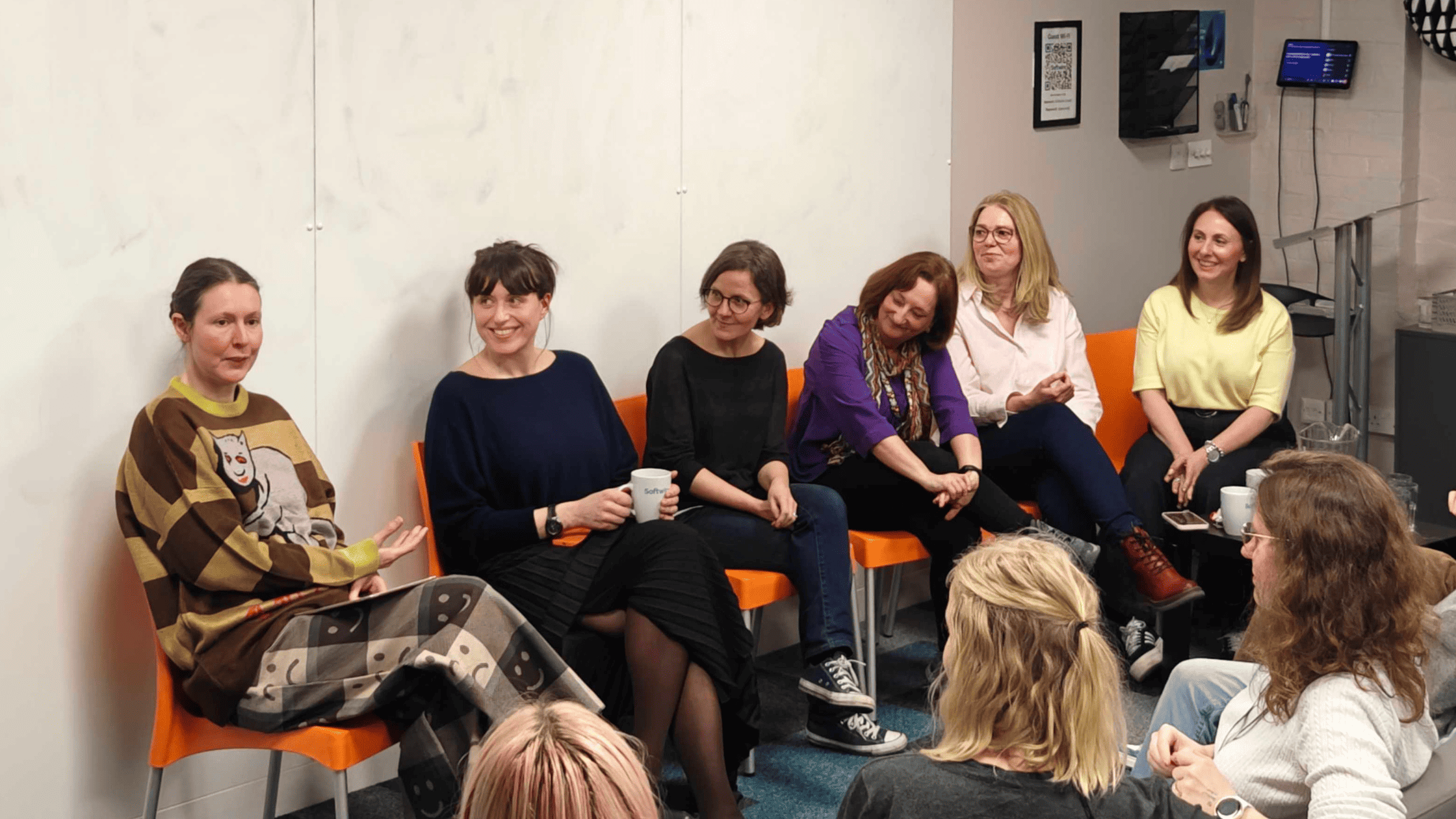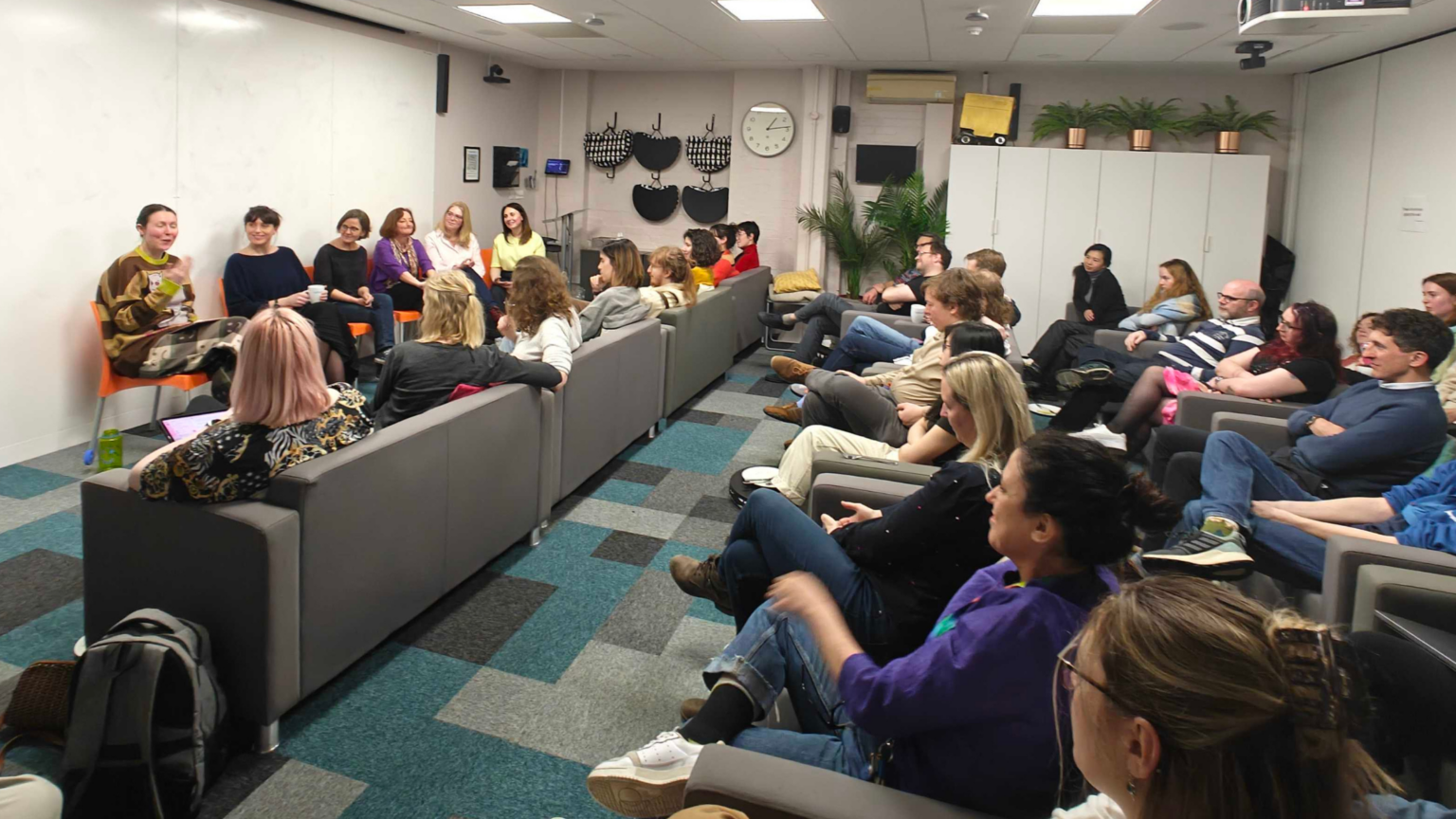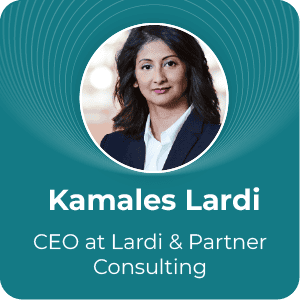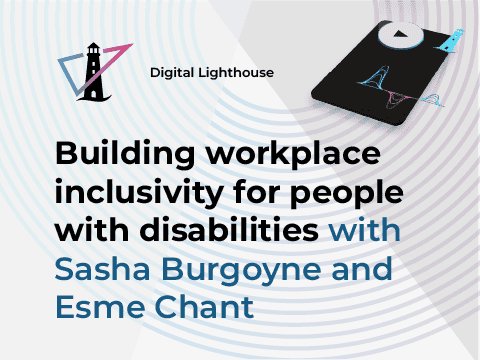
Last week a career-switcher I am mentoring came to me with a problem. She said, “I have half an hour of your time every week to make the most of your knowledge and experience and I feel I should be asking questions to help me become successful but I never know what to ask.”
My mentee is part of TechSwitch, a programme run by Softwire for career-switchers and returners, created by myself and my co-founder in 2019. TechSwitch was set up to provide an accessible route into Software Development roles for people who don’t see themselves represented in the industry.
Her problem was a tricky one for a couple of reasons. Firstly, my own career journey seemed squiggly and unusual, so I wasn’t quite sure how I’d actually got to this point in my career where I was seen as “successful”. Secondly, I recognised that the question was coming from a place of insecurity about her own abilities (in this case, the ability to make the most out of the session) rather than a practical question around using the session wisely.
That conversation had been stewing in the back of my mind for a few days when I attended a panel discussion organised by Softwire for International Women’s Day. As soon as it started I thought back to that conversation and realised that a lot of the topics both spoke to me and strongly related back to my mentee and her concerns surrounding both her own ability and the direction of her future career.
Introducing the panel

The panel discussion was organised to “shine a spotlight on some of the extraordinary women at Softwire”. Composed of a number of senior women within the organisation, it was an opportunity to increase their visibility and for them to pass on their knowledge and “keys to success”. Our senior female leaders are all from very different backgrounds and play different roles within the organisation:
Zoe, the moderator, has worked at Softwire for over 20 years and was the first woman they hired. She has held many different roles from Software Developer to Managing Director and now works within the Sales and Marketing Department.
Elodie is Director of People and Culture and has worked in HR across different countries, cultures and sizes of organisations.
Jo, our Financial Controller, took a career break from working in Finance to raise her family before coming back to work and joining Softwire seven years ago.
Laura has had a career ranging through every different size of company, through IT, Product, and CDIO to name a few, before joining Softwire and becoming our Delivery Director for the Public Sector.
Elin moved across the globe as a single mother to study Humanistic Informatics at university and used that as a springboard to study Comparative Media at MIT. She has since worked across the world of UX, Information Architecture and Services, and is now Director of Design at Softwire.
Rosalyn studied Chinese and Japanese at University and as a result worked in the Asia Pacific team for Marconi Communications, a telecoms manufacturer, before finding her passions lay in commercial contracts which she describes as “having a language all of their own”.
There were honestly too many great questions to do the panel justice, so here are just a few that I have focused on: “How do you deal with self-doubt?”, “Was there a moment you knew this is what you wanted to do?”, and “What is a quality you have always strived to achieve/embody?”
The panel discussion showcased the extraordinary journey and heights these women achieved in their careers. While all of it was inspiring and thought-provoking, with my mentee’s question ringing in my head, three things really stood out to me:
The plan is: there is no firm plan
When asked what was the point at which they knew what they wanted to do, all the panellists said it was more about following the things they were passionate about in the moment than crafting a specific career path based on milestones. All of them had moved through different roles and niches when opportunities presented themselves which suited the stage they were currently at.
The closest to “having a plan” was Zoe, who decided at one point she wanted to work towards becoming MD but didn’t set a timeline on it and instead worked on various opportunities that came up which would help her achieve that longer-term goal. But even she couldn’t have foreseen where her career would take her (indeed, she’s currently focusing on a second career as an actor!).
Several of them also said that if they were to do things again, they would absolutely do them differently. Laura talked about how she maybe could have changed her approach to one of her favourite projects at a previous company: “No one else was doing what we were doing and it was great. But we worked ridiculous hours and the support load was heavy. I went for weeks where I never got a single night where I didn’t get a call out, and I had a young child at the time. And I think sometimes you have to do that because you won’t have a business if you don’t do certain things. But it shouldn’t be an everyday thing that your job comes before the rest of your life.”
Careers are made up lots of incremental achievements, not one big one
Something the panellists all agreed on was how incremental changes and shifts had brought them to where they are now. None of them woke up one morning and thought, “I’ve done it, I’m X now!”
Zoe quoted something she heard long ago: “We always overestimate what we can do in the short term and underestimate what we can achieve in the long term… There’s no end date. We all have this feeling that we’ve got to do it right now. But if instead you think longer term, you can achieve things that are much bigger than you could possibly have imagined.”
Elin expressed a similar sentiment: “If you feel like you’re not getting anywhere, that you know nothing, you’re not achieving anything… Think about what are the changes that you’re seeing around you, because you will have had an impact, for sure!”
The panellists pointed out that when they started out most of the jobs they do now didn’t exist, so it would have been impossible to aim for but you can try to think about what jobs there might be and whether they would interest you.
“What I believe about myself is not the reality”
Unsurprisingly, the panel also discussed the impact their gender has had on their journeys. Elin spoke about how women’s work and achievements are often overlooked or under-praised, but these things still have an impact regardless of the recognition. It’s up to us to recognise our own impacts and unique brilliance to quiet the voice of self-doubt that aims to belittle our successes. As Elin put it, “What I believe about myself is not the reality.”
When asked about overcoming self-doubt, Jo told the audience about how when she had gone to uni she was nervous and surrounded by people from private schools who seemed to be confident, sophisticated and could talk about anything. But she recalled one day when one of them drunkenly admitted that he wished he was as confident as her, “Well I nearly fell off my chair!” During class, whenever a question was asked Jo was always determined to answer, even if it was wrong, whereas he had always made a joke instead because he was so terrified of being wrong. Each of them had mistaken the other’s response for confidence.
In conclusion
My personal takeaway points from listening to the panel’s own experiences were:
- It’s rare to find someone who had a smooth, linear path to where they are now and many people change their mind as their career evolves.
- For many of us, it is easy to look at others and assume that they knew what they wanted from the start, had a direct path to where they have ended up and feel they have achieved “success”. But I think the real secret here is that there is no magic moment when you realise your dream (unless you’re an Olympic athlete or something similar). For most of us, our dreams are achieved slowly, over time with tiny incremental movements and decisions.
- If you have been struggling with feeling like you haven’t achieved enough yet, know that every woman on that panel (and in fact every person in the room, after Zoe asked for a show of hands!) has experienced imposter syndrome. Two panellists even shared that they weren’t sure why they had been invited to be there among all these other incredible women. Because it is so hard to compare ourselves and our successes to others and come out feeling good about ours.
When I speak to my mentee again, I am absolutely going to tell her about this panel, about my own experience and so many others I know of who feel the same; that there is probably not going to be a moment when she wakes up and thinks “I’m a Software Developer now” but there probably will be a moment in a year or so when she takes stock, looks back on what she has been doing and realises that she already was one.
Because while there is no golden nugget of wisdom, I can use the collective experience of all these amazing women to show that she is already more successful than she thinks, everybody doubts their own abilities and that, most importantly, she has so much time to achieve amazing things.


